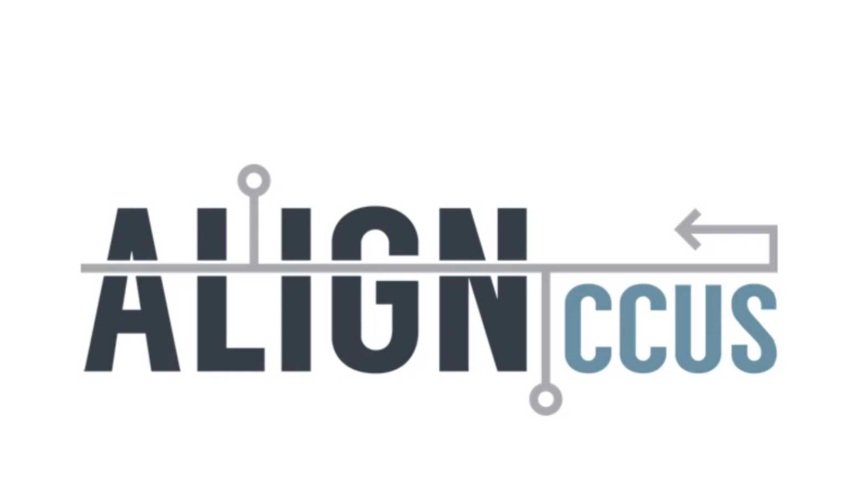Proiecte
Cercetare
Finanțarea activității de cercetare a INCD GeoEcoMar se efectuează prin participarea la licitații interne și internaționale sau prin contractare directă cu parteneri din țară sau din străinătate.
Pentru creșterea capacității științifice și tehnice a INCD GeoEcoMar, sunt urmărite ca direcții principale de finanțare următoarele: competițiile interne de proiecte organizate de MECI sau de alte ministere sau agenții guvernamentale, fondurile structurale, sursele extrabugetare și cele atrase (ex. donații, sponsorizari).
Lista proiectelor în ordine alfabetică (A-Z)

The ALIGN-CCUS project aims to accelerate the transition of current industrial and energy sectors towards a future in which economic activities generate low carbon emissions, with carbon capture, utilization, and storage (CCUS) playing a key role. ALIGN addresses specific challenges within the CCUS chain for industrial regions in ERA-NET countries, enabling the large-scale and efficient deployment of CCUS by 2025.
Within the framework of the contract, GeoEcoMar had the responsibility to participate as an expert in macrozoobentos in the Joint Black Sea Surveys 2019 of the EMBLAS Plus project, in charge of supervising all aspects of the sampling, analysis and assessment of macrozoobentos. Moreover, the institute was responsible with the processing of macrozoobenthos data collected from all partners involved in EMBLAS Plus, thus contributing to the setting of threshold values for indicators.
The project’s general objective is to enhance the participation of Romanian consortia and organizations in the activities of the pan-European infrastructure DANUBIUS-RI, focusing on integrated studies related to the sustainable use of bioresources in the Danube–Danube Delta–Black Sea system.
By implementing the planned activities, the project will primarily contribute to consolidating Romania’s role within DANUBIUS-RI, while also fostering the development of scientific potential in a region that is unique in Europe and of significant interest to the European scientific community—the Danube Delta, a natural laboratory of European importance.
- In December 2013, the EU adopted the work program for the joint implementation strategy (CSI WP) of the MSFD for the period 2014-2018. The joint implementation strategy aims, among other things, to address the shortcomings and drawbacks of the first phase in terms of coherence and comparability of its implementation by Member States within and between the marine regions. The activities highlighted for the Black Sea region were: 1) review of the GES definitions and environmental objectives; 2) development of a joint monitoring program; 3) improvement of common understanding and scientific knowledge on some specific descriptors; 4) development of tools to facilitate the exchange of information, reporting and public participation; 5) development of a coordinated Program of Measures ; 6) improving links with existing and new instruments under other Directives; 7) taking into account the possible role and involvement of the Regional Seas Conventions and EEA.
- During a meeting organized by the European Commission to discuss the recommendations in the evaluation reports referred to the Article 12, focused on regional level, Romania and Bulgaria agreed to work together to improve the adequacy and coherence of the implementation of the MSFD. In 2014, the Commission established that continued support would be needed to make significant progress in the Black Sea. Bulgaria and Romania agreed to start by reviewing and developing coherent GES definitions, environmental objectives and identifying common indicators. The two EU countries also agreed to develop coordinated action programs taking into account the work carried out under the supporting project Arcadis contract – phase I and the Bucharest Convention, as well as to take into account joint measures whenever possible.
- The purpose of the contract was to support Bulgaria and Romania in developing joint and/or coordinated measures to be taken into account in the development of their national program of measures.

The future of the Black Sea is a key priority for the European Union. The Burgas Vision Paper issued in May 2018, under an initiative supported by the European Commission, outlines the key framework to ensure the sustainable development of the Black Sea by 2030. It focusses on the creation of a Strategic Research and Innovation Agenda (SRIA) based on the identification of critical research problems. The 2019 “Bucharest Declaration” of the scientific community launched the Strategic Research and Innovation Agenda (SRIA) for the Black Sea. Black Sea CONNECT is a key H2020 Coordination and Support Action (CSA) which addressed the development of scientifically, technically and logistically support for the broader Black Sea Blue Growth Initiative, supported by the European Commission (EC) and composed of country-appointed experts, stakeholders and various national and international organizations.
Black Sea CONNECT was the first project in its own field for Black Sea. The initiative has strengthened connections among Black Sea countries, paving the way for long-term regional cooperation and sustainable growth.
The overall objective of the Black Sea CONNECT was to coordinate the development of the Strategic Research and Innovation Agenda (SRIA), based on the defined principles in the Burgas Vision Paper, and support the development of the Blue Economy in the Black Sea.
The SRIA and its Implementation Plan will guide stakeholders from academia, funding agencies, industry, policy, and society to address together the fundamental Black Sea challenges, to promote the blue economy and its prosperities of the Black Sea region, to build critical support systems and innovative research infrastructure and to improve education and capacity building.

